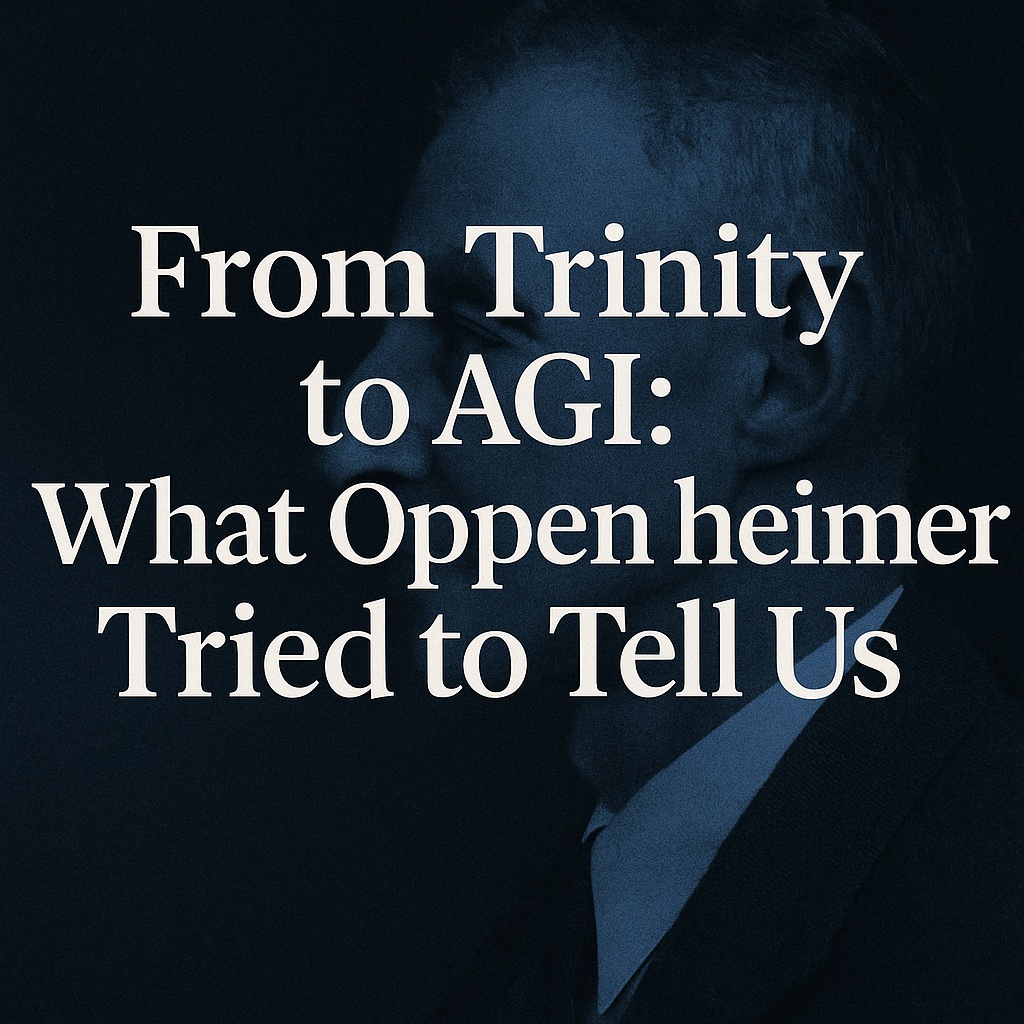
I. Opening Image: Trinity, Then and Now
On July 16, 1945, the desert lit up with fire. As the first atomic bomb exploded over the New Mexico sands, J. Robert Oppenheimer stood in silence and uttered words from the Bhagavad Gita: “Now I am become Death, the destroyer of worlds.”
Thanks for reading Kevin’s Substack! Subscribe for free to receive new posts and support my work.
In that moment, the world crossed a threshold it could never retreat from.
Today, we stand at another such threshold — this time, not of nuclear fission, but of artificial intelligence. The minds who built the bomb knew they were entering moral territory as dangerous as the technology itself. Are we repeating the same pattern — only faster, and with less reflection?
II. Parallel Architects: Shared Dilemmas Across Eras
Oppenheimer led the Manhattan Project, and eventually questioned the very power he helped unleash. In our time, figures like Geoffrey Hinton, Yoshua Bengio, and other leading AI researchers are confronting similar ethical terrain.
Hinton left his post at Google to speak openly about AI’s existential risks, stating that stepping away freed him to voice concerns without corporate constraint. Others — from university labs to former corporate teams — have expressed growing anxiety about AI’s potential to destabilize society, increase inequality, and exceed our ability to control it.
This is not about casting anyone as a villain or a prophet. It is about recognizing a pattern: brilliant minds building powerful systems, only to later realize that the speed and scale of what they’ve made may exceed the moral scaffolding around it.
III. The Voice We Still Need
Unlike in Oppenheimer’s time, today’s ethical awakening isn’t centered on one person. It is a loose constellation of scientists, researchers, and thinkers who are sounding the alarm — and paying the price.
Some step down. Others are silenced. Most are simply ignored.
But what’s missing is a type of community — not just a research community, but a public one rooted in shared values and civic responsibility. These decisions are no longer technical; they are civilizational. And they cannot remain in the hands of a few billionaires or closed-door boards. These are questions for humanity, and they must return to the public square. A robust civil society must be forged from this.
IV. What Oppenheimer Showed Us
Oppenheimer was a scientist, yes — but also a poet, a teacher, a bridge between worlds. He understood the stakes, not just in equations, but in the soul. And when he opposed the H-bomb, he lost everything: his security clearance, his reputation, his proximity to power.
But he did it anyway.
What we need now is not just insight — but that kind of courage. The courage to speak clearly when everyone else is accelerating. The courage to pause.
V. Closing Call
This is not a call for nostalgia. It’s a call for presence. The AI age doesn’t need a lone genius — it needs a collective conscience. It needs voices — loud, clear, and morally grounded — to say:
“The question is not whether we can build it. The question is whether we can live with what we’ve built.”
Oppenheimer asked that question too late.
We still have time to ask it now.
